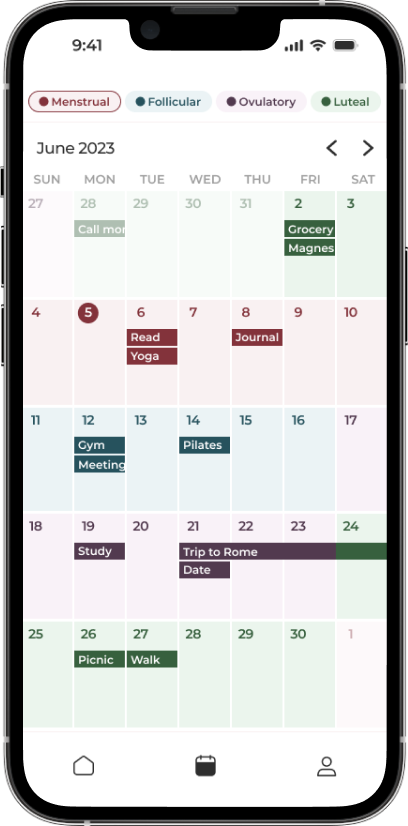How Does Developing Grit Contribute to Personal Growth?

Personal growth isn’t a destination—it’s a continuous journey. While skills and knowledge are important, one of the most crucial traits that contributes to lasting personal development is grit. But what exactly is grit, and how does it shape our path toward growth?
What is Grit?
Grit is the blend of passion and perseverance that helps us push through challenges, maintain our focus over the long term, and keep striving toward our goals—even when things get tough. It’s about staying committed to our objectives, regardless of setbacks or difficulties. Unlike natural talent or intelligence, grit can be developed and strengthened over time.
Psychologist Angela Duckworth, who has extensively studied grit, defines it as “passion and perseverance for long-term goals.” She argues that grit is a more reliable predictor of success than talent or IQ because it’s the sustained effort that leads to accomplishment. But how does this powerful trait contribute to personal growth?
Building Resilience
One of the key ways grit contributes to personal growth is by building resilience. Life isn’t always smooth sailing, and the road to success is often filled with obstacles. Grit gives us the strength to bounce back after failures, learn from them, and keep moving forward.
When we face setbacks, having grit means we don’t let challenges define us or deter us from our ultimate goals. Instead, we see them as opportunities for growth. Each failure becomes a lesson that pushes us closer to success. Resilience doesn’t just help us endure difficult moments—it helps us grow stronger and more capable of handling future challenges.
Encouraging Long-Term Vision and Persistence
Without grit, it’s easy to give up when things get hard. Grit provides the persistence needed to keep working toward our goals, even when the initial excitement wanes. Personal growth often requires a long-term commitment, and this is where grit shines.
People with grit are not easily discouraged by short-term challenges. Whether it’s mastering a new skill, advancing in a career, or working toward a life-changing goal, grit ensures we don’t quit halfway through. It fuels our determination and helps us stay on track, even when the rewards seem distant or the path unclear.
Enhancing Self-Discipline and Focus
Grit also helps us build self-discipline and improve our focus. Personal growth is often about making consistent, small changes rather than relying on bursts of motivation or sudden inspiration. Grit pushes us to stay disciplined, consistently working on the habits and actions that will lead to long-term success.
With grit, we develop the ability to block out distractions, prioritize tasks, and stay focused on our goals over time. Instead of looking for quick fixes or shortcuts, we learn to embrace the process of growth and trust that the work we put in today will pay off tomorrow.
Quiz: What Is Blocking Your Success?
This quick quiz will help you figure out which mental or behavioral pattern might be holding you back from achieving your full potential. Identifying your specific success blocker is the first step toward breaking through to new levels of achievement and fulfillment.
Read each question and choose the answer that feels most true to your situation.
No email or payment is required to complete the quiz and receive your personalized insights.
Once you have your primary success blocker, you have clarity about what’s been holding you back. This awareness is powerful—many people spend years struggling without understanding the specific pattern that’s limiting their progress.
Remember, these patterns aren’t permanent character traits but rather habitual ways of thinking and behaving that can be changed with the right guidance and practice.
If you’re ready to break through your specific blocker and achieve the success you know you’re capable of, send me an email to try out a coaching session. Your breakthrough awaits!
Grit Fosters Self-Confidence
As we push through challenges and stay committed to our goals, our self-confidence grows. Each victory—no matter how small—reinforces our belief in our ability to succeed. This confidence becomes a powerful motivator, propelling us to tackle even bigger challenges with the assurance that we can handle them.
In essence, grit builds a positive feedback loop: the more we stick with things, the more confident we become. This confidence, in turn, encourages further growth, helping us to tackle even more difficult goals.
Grit Improves Problem-Solving Skills
Personal growth requires learning to solve problems, and grit contributes to this by encouraging us to tackle challenges head-on. When we face difficulties, instead of giving up or getting discouraged, we look for solutions. With perseverance, we develop problem-solving skills that are essential for growth. We learn to approach obstacles creatively, seek alternative solutions, and refine our methods until we find what works.
This ability to tackle problems and remain adaptable is a major factor in how we grow as individuals, as it enables us to overcome obstacles without being defeated by them.
Building a Growth Mindset
Grit is deeply intertwined with the concept of a growth mindset, which is the belief that our abilities and intelligence can be developed with effort and perseverance. People with a growth mindset embrace challenges, persist through obstacles, and see failure as a stepping stone to improvement.
By cultivating grit, we are more likely to develop a growth mindset. This belief in our ability to improve over time is a key factor in personal growth, as it encourages us to keep learning, evolving, and pushing our boundaries.
How to Build Grit
Building grit is an essential part of personal growth and success. It’s the trait that keeps you moving forward when things get tough, pushing you toward your long-term goals. The good news is that grit is not something you’re born with—it can be cultivated. Below are some practical strategies to help you build and strengthen grit.
1. Clarify Your Long-Term Goals
Grit is fueled by passion and a sense of purpose. To build grit, start by clarifying what truly matters to you. What long-term goals are you willing to commit to, even when the journey gets challenging?
Ask yourself:
- What do I truly care about achieving?
- What excites and motivates me, even when it’s tough?
- What kind of person do I want to become?
Once you’ve identified your long-term goals, write them down and remind yourself why they are meaningful. When you have a clear purpose, it’s easier to stay motivated through the ups and downs.
2. Focus on Small Wins
While having long-term goals is important, building grit requires you to break those goals down into manageable, smaller tasks. Focusing on daily or weekly wins helps you feel a sense of accomplishment, which keeps you motivated to continue.
For example, if your goal is to write a book, don’t get overwhelmed by the idea of writing 300 pages. Focus on writing 500 words a day. Celebrate each small win to keep momentum going. Consistency is key to building grit.
3. Embrace Challenges and Setbacks
Grit isn’t about avoiding challenges; it’s about how you respond when they arise. Instead of seeing obstacles as failures, view them as learning opportunities. When you encounter a setback, reflect on what went wrong and figure out what you can do differently moving forward.
Changing your mindset around challenges is essential. The most successful people aren’t those who never fail—they’re the ones who persevere through failure and use it as a stepping stone to improvement.
4. Practice Self-Discipline
Building grit requires self-discipline. It’s easy to stay motivated when everything is going well, but the real test of grit is staying committed even when things aren’t going as planned.
To strengthen your discipline:
- Set specific, measurable, and time-bound goals.
- Create a routine that supports your long-term objectives.
- Remove distractions and stay focused on the task at hand.
- Hold yourself accountable—track your progress and set small deadlines.
Self-discipline may be challenging at first, but the more you practice, the easier it becomes.
5. Develop a Growth Mindset
A growth mindset—the belief that you can improve through effort—plays a crucial role in building grit. When you see challenges as opportunities to grow, you’re more likely to stick with them. Instead of saying, “I can’t do this,” shift your mindset to, “I can’t do this yet.”
Remind yourself that every setback is a part of the learning process, and it doesn’t define your abilities. With a growth mindset, you’ll view obstacles as a natural part of achieving success rather than something to avoid.
6. Surround Yourself with Supportive People
Building grit doesn’t mean going at it alone. Surround yourself with supportive people who encourage your efforts and help you stay focused. Positive relationships can inspire perseverance and provide the emotional strength needed during tough times.
Seek out mentors, friends, or communities that align with your goals. Their encouragement can keep you motivated, and you can also learn from their experiences of overcoming obstacles.
7. Build Mental Toughness
Mental toughness is the ability to stay focused and resilient, even in the face of adversity. It’s a key component of grit. You can build mental toughness through practices such as:
- Meditation or mindfulness to reduce stress and increase focus.
- Visualization techniques to mentally prepare for challenges.
- Self-talk that focuses on positive outcomes and perseverance.
By training your mind to stay calm and focused during tough situations, you’ll improve your ability to stay on course and keep working toward your goals.
8. Take Care of Your Well-Being
Building grit requires energy, both physical and mental. It’s important to take care of your health by getting enough sleep, eating well, and exercising regularly. When you feel physically strong and energized, you’re more likely to maintain perseverance during tough times.
Additionally, focus on mental health practices such as journaling, taking breaks, and practicing gratitude. Well-being helps maintain the emotional stamina necessary for building grit.

Check out the Vision to Action Planner for only 6$
More infoStill waiting for the 'perfect time'?
Email me what you'd do if you stopped making excuses. We'll work backwards from there.
Let's startRecent posts
-
The Complete Guide to Becoming a High Achiever
Read blog -
How To Make a Positive Impact in Your Community
Read blog -
What Is the “Winter Arc” Challenge?
Read blog -
What Is "the Great Lock-In" and Should You Try It?
Read blog -
What Are the 75 Hard and Soft Challenges?
Read blog -
How to Validate Yourself
Read blog

The App Made To Sync Your Lifestyle to Your Menstrual Cycle.
A solution for women who are looking to keep track of what they sync to their cycles, such as fitness, diet, etc. by adding it to a calendar that also predict their phases.
Learn more





Comment